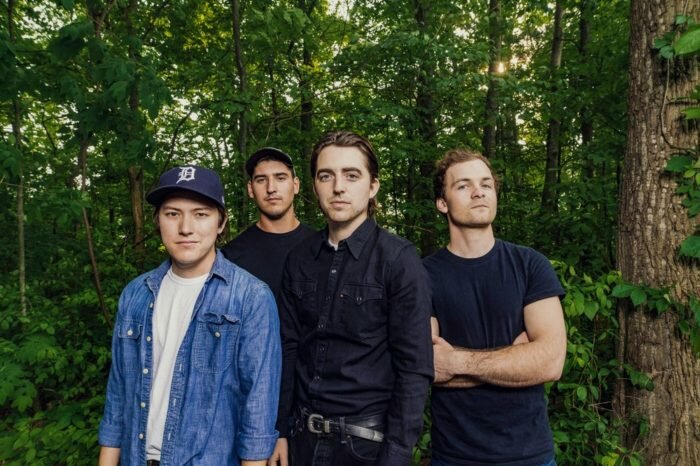“People v. O.J.” Was Great, But Should We Want More True Crime TV?

More than 20 years have passed since O.J. Simpson was found not guilty of killing Nicole Brown Simpson and Ronald L. Goldman on Ms. Simpson’s Brentwood property in 1994. Public opinion has shifted even further to the side of “he did it” since then, and Simpson is currently in jail for armed robbery and kidnapping. But the case’s complexities and intricacies remain as compelling and relevant as ever.
More than a week has passed since FX aired the final episode of “American Crime Story: The People v. O.J. Simpson,” an excellent 10-episode series detailing and dramatizing the Trial of the Century for television. And public opinion is, apparently, uproarious praise (or at the very least, attentive eyeballs).
We should have known, really. It would have been hard for a show about the murder trial of O.J. Simpson to not be good. But there was some skepticism whether “People v. O.J.” would work, largely given the involvement of executive producer Ryan Murphy.
Murphy (“American Horror Story,” “Glee,” “Scream Queens”) is a bit notorious among TV critics for his sensationalist, melodramatic and overly self-indulgent shows. In essence, there was a fear that he wouldn’t treat the characters and humans involved seriously. One critic feared that Murphy’s involvement would lead to the story being treated like a joke. Another called discipline and restraint a “rarity” in Murphy-led television shows. And sure, “People v. O.J.” was plenty self-indulgent. There were countless sweeping, dramatic squirrel shots. There was bad, exaggerated acting. There was whatever the hell this was.
But here’s what those critics failed to take into account. If you want to keep a circus organized, your best bet is to call a Ringling Brother. See, if Murphy’s style is ridiculous and over the top, the actual facts and events of the O.J. Simpson murder trial were doubly so. There were so many unbelievable things that happened over the course of the case that a screenwriter — even a respected one — pitching the story as a fictional one would be laughed out of every office in Los Angeles. However, coupled with the confident screenwriting skills of Scott Alexander and Larry Karaszewski (The People vs. Larry Flynt), Murphy’s wild cinematographic stylings made for fascinating and entertaining television.
The success of “People v. O.J.” also came from great acting performances across the board. This cast might just sweep the Emmys this fall. Sarah Paulson did more image rehabilitation for prosecutor Marcia Clark than should be possible through an entertainment medium with her measured and humane performance. Courtney B. Vance gave a jaw-droppingly great, fun and complex performance as Johnnie Cochran that I would rank among the best in recent television industry. Sterling K. Brown made the case’s outcome hurt all over again, delivering an intimate and vulnerable performance as prosecutor Chris Darden, the prosecutor who seemed trapped in the middle of an impending race war. The characters were simply complex and distinctly human. The performances made me want to root for every character, despite some of them being diametrically opposed.*
*Except for Robert Shapiro. No one was rooting for Robert Shapiro. I should also note that O.J. Simpson felt like an ancillary character on his own show, which is fine considering Cuba Gooding Jr.’s performance was also just “fine.” The problem with asking someone to play O.J. Simpson in a television show is that they will almost certainly lack the charisma and panache that helped O.J. convince people to unironically call him “Juice.” Gooding gave a good performance, but he could never reach those particular heights.
“People v. O.J.” even has a lot of things to say about fame, police-citizen relations and race, things that still feel particularly relevant today. For example, take this Chris Darden quote from the show:
[Spoilers, but really not spoilers because this is a real-life thing that happened 20 years ago]
“This isn’t come civil rights milestone. Police in this country will keep arresting us, keep beating us, keep killing us. You haven’t changed anything for black people here. Unless, of course, you’re a famous rich one in Brentwood.”
Chris Darden may be right about that. That’s one of the things that makes this show so interesting. But “People v. O.J.” may have solidified a change that has been coming down the pike for a while now. And for televised entertainment, there’s no turning back.
****
I’m not sure if we should be thrilled or terrified as entertainment fans right now. True crime anthology series are taking over the airwaves, and we can’t stop it.
It started a couple of summers ago with a podcast named “Serial,” which swept the nation and threatened to turn us all into amateur detectives (and is, coincidentally, also being made into a television show). Then “The Jinx” came along and gave us one of the greatest television moments that I’ve ever seen. Next, “Making a Murderer” took its turn in outraging the Internet. Now, we’ve had “People v. O.J.” see tremendous success on FX.
Everyone is trying to jump on board. NBC just ordered “Law and Order: True Crime.” (Yes, really.) CBS just ordered a true crime anthology series. Surely, more similar announcements are on the way as entertainment is often a reactive business (“That worked? Let’s make one. People will love it!”).*
*In television, “anthology” typically just means that one distinct story is being told per season. Subsequent seasons may be tangentially, or not at all, related. I should also note that while most true crime television shows are anthology series, not all anthology series are true crime. For example, “Fargo” — despite what it says at the beginning of each episode — is an anthology series that is very much fictional.
But for every “Serial,” there’s a “Serial” season two. For every “People v. O.J.,” there’s whatever the hell this Martin Sheen thing is. For every “Making a Murderer,” there’s a…let’s be honest — “Law and Order: True Crime.”
So how should we feel about this impending TV trend?
Well, there’s a reason that these things are incredibly addictive when done well. The facts of each specific case in these shows are typically unbelievable. But you can’t call something unrealistic if it actually happened. They also typically ask compelling (and often unanswerable) questions that keep you glued to the screen in hopes of an answer. What it boils down to most often is that you either have to believe that one particular person did an unspeakably horrible thing and was caught or that a large group of people participated in an evil conspiracy to catch said person. In other words, these shows appeal to our inner conspiracy theorist. WHY WASN’T THERE MORE BLOOD IN THE SUV? You have to either choose to believe the simplest explanation or the far more complicated (but also far more interesting) one.
And of course, they’re stories about real humans. And that’s when entertainment is at its best and most resonant, when it appeals to something deep and human within us. That’s what the best of true crime anthology series do, and that’s something “People v. O.J.” did incredibly well.
Will the next batch of true crime anthology series be good? We might want to believe that all of them will be horrible, cheap rip-offs of the great shows that started the trend or that you can never fail when making shows about true crime stories. But the truth is this: Some of them will be good. Some of them won’t be good. If that answer is unsatisfying, get used to it. Because you’ll probably get similar answers from the true crime shows you watch.
Will we ever know the whole truth, and nothing but the truth? Probably not. But the fun is in thinking that we will.
“American Crime Story: The People v. O.J. Simpson” is now available to watch on FXNow with your cable log-in information. The next season of the anthology series is expected to cover the events surrounding Hurricane Katrina in New Orleans. Check it out, and let us know what you think.
Hidden in Plain View is a bi-weekly column where I help you find great shows buried in the clutter that is modern television. With more than 400 original scripted series on TV in 2015 alone (and more expected this year), it is simply a fact that you’re missing out on something great. Archive of previous columns here.








